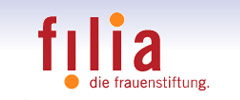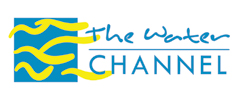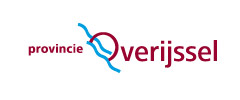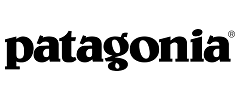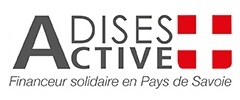Democratization of the governance of the Dniester river basin
Local authorities, NGOs and citizen's communities work together in trans-boundary cooperation between Moldova, Transdniestria and Ukraine towards sustainable management of Dniester River Basin
19.04.2010
| Countries: | Moldova, Ukraine |
| Donors: | Ministry of Foreign Affairs (MinBuza), European Cooperation, MATRA programme, The Netherlands |
| Partners: | Eco-Tiras, Eco-spectrum, Black Sea Women's Club |
| Issues: | Water & Sanitation |
| Duration: | 12/2007 - 12/2010 |
Local authorities, NGOs and citizen's communities work together in a trans-boundary cooperation between Moldova, Transdniestria and Ukraine on the sustainable management of Dniester River Basin, with the aim of working towards democratisation of the Dniester River Basin governance.
Involving civil society and local communities in the environmental management of four tributary rivers of the cross-border Dniester river is one of the main goals of the project. The challenges faced by Moldova and Ukraine are pollution of the river from untreated waste-water, solid waste, industrial waste, cooling water as well as erosion from (illegal) wood logging along the river banks. The project connects with the international efforts of Moldova, Ukraine and the OECD for better cooperation in addressing these challenges. The partners in the 3-year project are the lead NGOs, Eco-Tiras, Ecospectr, Black Sea Women’s Club and their 6 local partner NGOs. The project is financed by the MATRA program of the Netherlands Ministry of Foreign Affairs.
Contacts for the Project:
- Svetlana Slesarenonk, Black Sea Women’s Club slesarenok (at) ukr.net
- Ilya Trombitsky, Eco-Tiras, ilyatrom (at) hotmail.com
- Ivan Ignatiev, Ecospectr, ecospectrum (at) mail.ru
- Sabine Brueckmann, WECF, Sabine.Brueckmann (at) wecf.eu
Dniester River Conference 2008
The International Conference "Transboundary Dniester River Basin Management and the EU Water Framework Directive" in Chisinau, Moldova, on Oct. 2-3, 2008, gathered more than 150 scientists, politicians, specialists and NGOs from the transboundary Dniester River basin and abroad, representing 111 organizations. The Conference was organized in cooperation with the Ministry of Ecology and Natural Resources of Moldova and Academy of Sciences of Moldova in partnership with WECF and financially supported inter alia by the MATRA Program of the Dutch Ministry of Foreign Affairs.
In her opening address Sascha Gabizon – Executive Director of WECF – emphasized the importance of common efforts to realize transboundary cooperation and strong public participation for a better management of the Dniester river basin, which are the basis for a sustainable improvement of the river quality and consequently of peoples quality of live! She expressed that the ongoing project “Democratization of Dniester river basin governance” which focuses on a trans-boundary cooperation of local authorities, NGOs and citizen's communities between Moldova, Transdniestria and Ukraine towards sustainable management of Dniester River Basin, is a further important step into this direction.
Together with Anna Samwel – field officer in Eastern Europe – she highlighted some strategic points based on WECF’s experience in other projects, which are also relevant for the Dniester Basin. As WECF’s indicative nitrate testing of drinking water quality in Moldova, show, groundwater used as drinking water is mostly polluted with nitrates. Therefore, better management of waste water and human excreta is important, not only to reduce infiltration into the river, but in particular to improve the health status of rural populations in the basin.

Sascha Gabizon also highlighted a particular risk which had been encountered during the baseline studies carried out along the tributaries to the Dniester River. Residents along the Zolota Lipa river in Ukraine had complained about a case of a dangerous storage of fertilizer and pesticides directly beside the river. The residents are very anxious about the closeness of the storage to the river and to the private houses as well as about the uncooperative procedure of the UK-based company, concerning the lease of the land and information policy.

Related News
Meet the Winners of the Gender Just Climate Solutions Award at COP24
On the 70th anniversary of the Universal Declaration of Human Rights, we awarded Gender Just Climate Solutions Winners at the climate negotiations in Katowice, Poland
11.12.2018
Invitation: Gender Just Climate Solutions Award 2018
10 December, COP24 Katowice
04.12.2018
Getting to the Future We Want
4-7 November, Brussels: European Environmental Bureau’s (EEB) Annual Conference
12.11.2018
GoodFood4All
WECF and partners all over Europe start GoodFood4All Campaign
06.11.2018
#Ruralwomen: join our Women2030 campaign!
15.10.2018
Lack of trustworth information is a barrier to chemicals & product related decision-making
8-9 October, Geneva: short report of the meeting of the Aarhus Convention’s task force on public participation in decision-making
12.10.2018
Congratulations Sascha!
Named thirty-third most influential sustainability fighter in the Netherlands
08.10.2018
The Netherlands in the next gear - Adopt an SDG Live!
WECF and Building Change organised the event “The Netherlands in the next gear – Adopt an SDG live” on 27 September in the Koorenhuis in The Hague
02.10.2018
Human Biomonitoring for Europe
Vienna, 26 September: stakeholder forum
28.09.2018
























